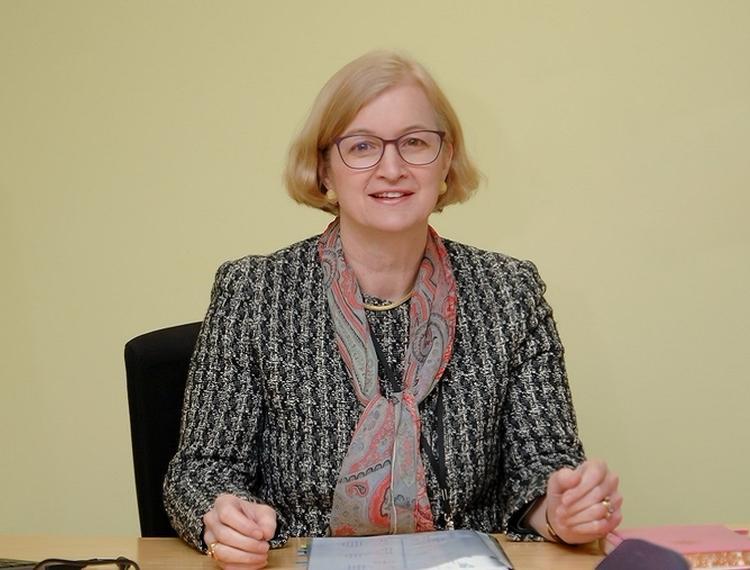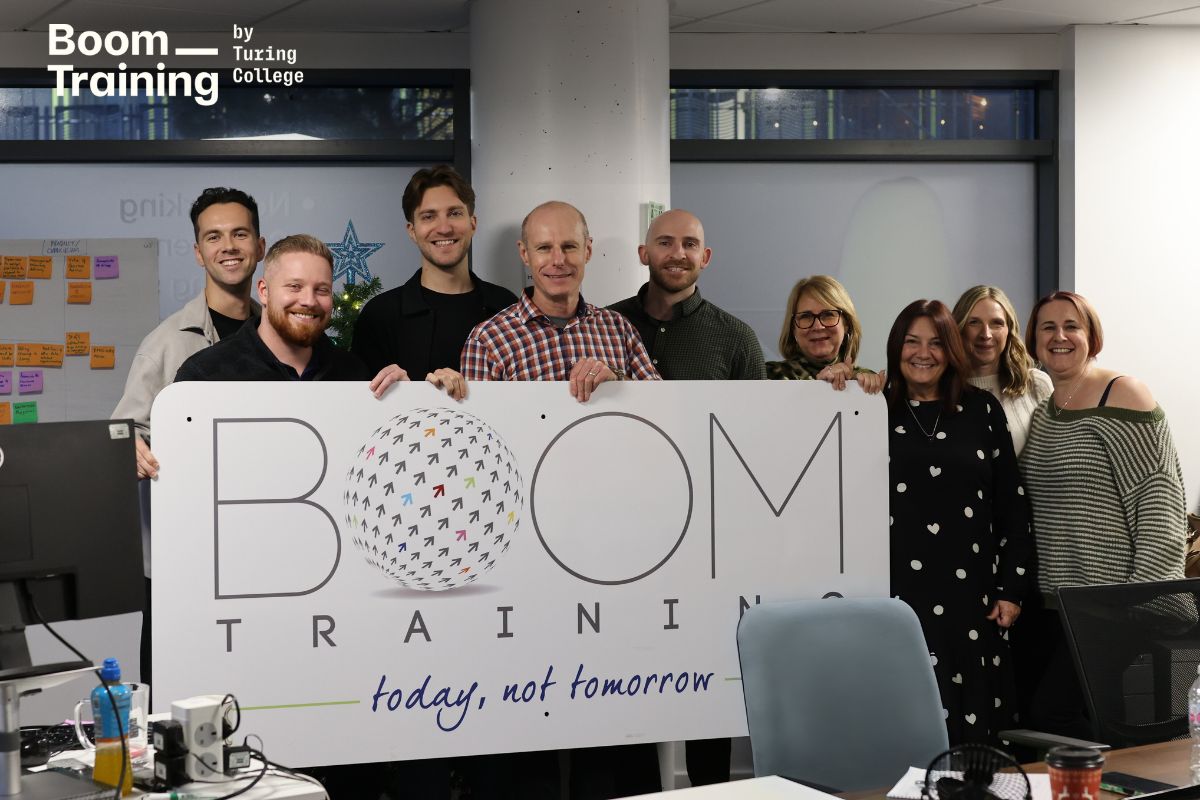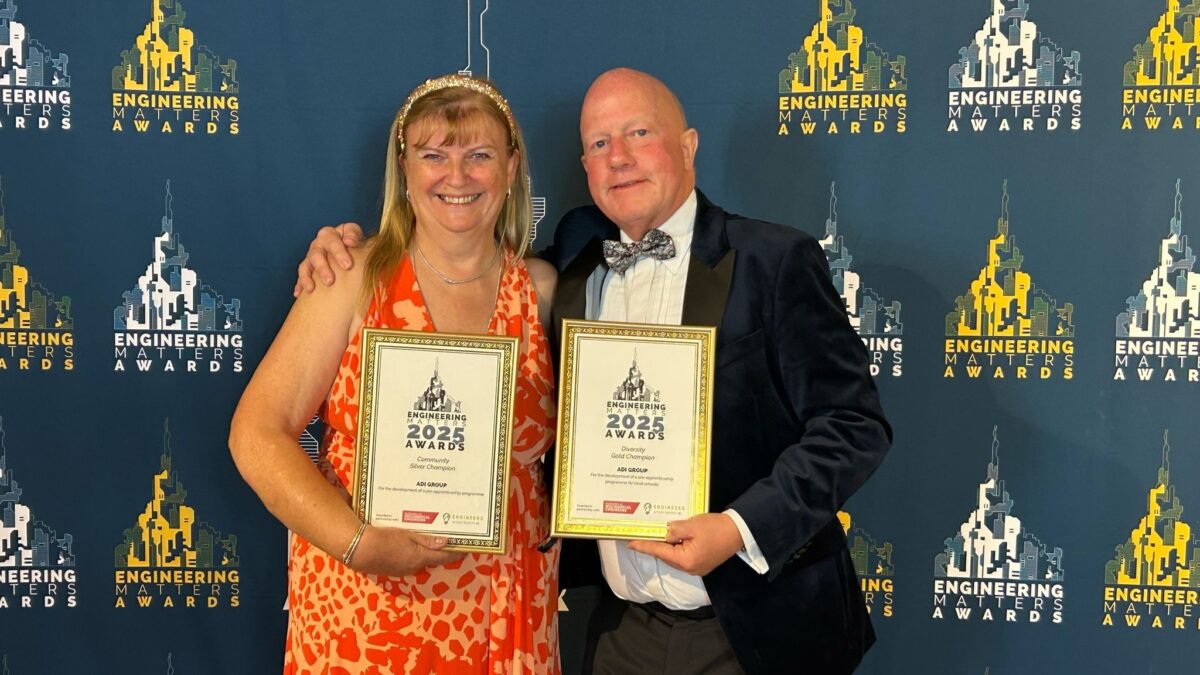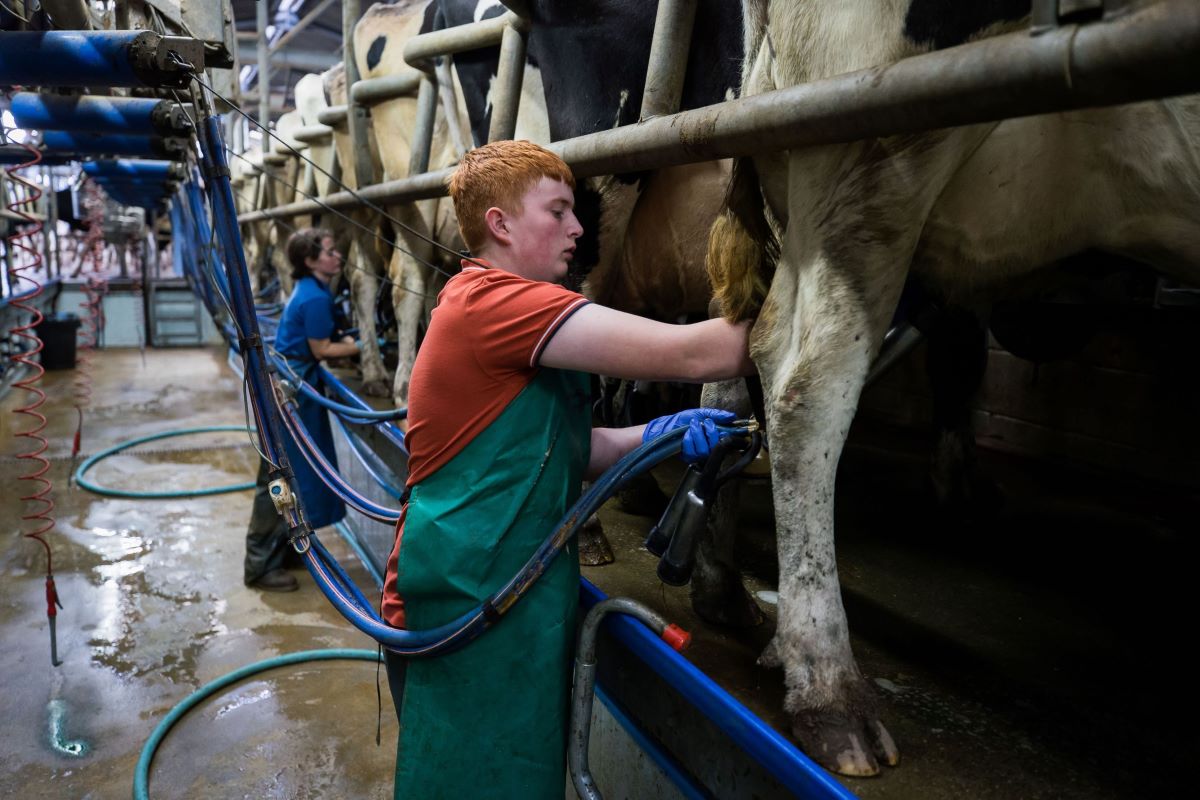HM Chief Inspector Amanda Spielman discusses science education and the quest for knowledge

Amanda Spielman’s speech at the Association for Science Education Annual Conference 2018 on 5th January.
Thank you for inviting me here today. And thank you to the ASE for bringing us all to the University of Liverpool, an institution at the very top of its game in combining scientific discovery with science education.
And I believe it is important for any profession such as teaching to continue questioning and testing established practice and so-called knowns. As the great Karl Popper wrote in ‘The logic of scientific discovery’, ‘the game of science is, in principle, without end. He who decides one day that scientific statements do not call for any further test, and that they can be regarded as finally verified, retires from the game’.
This is true for education just as it is for pure science – and it is why we are all here today: to hypothesise, test, adapt and ultimately to get closer to the truth. And in education, that truth is about what makes for effective teaching and how all the different actors in the system can help achieve it.
As one of those actors, inspection is and always should be subject to just as much scientific scrutiny as teaching. It is important to test and evaluate our own processes not just to determine what we look at during inspection, but also how we inspect, judge and report on education standards more generally. And so Ofsted’s new strategy published last year puts research and evaluation at the centre of everything we do, from the inspection frameworks we use to the impact we have across the system. We are continually building the evidence that allows us to review our own work and ultimately support the decisions we take in our new inspection framework, due in September 2019.
A curriculum that challenges all
One of those pieces of research is on the curriculum, an area that has been starved of attention in recent years but which is the staple of good education. I have spoken at great length about the importance of a good curriculum and how it differs from success in exams or the timetable.
We now have evidence from a large number of research visits and inspections, adding to evidence from other sources. Starting from the premise that most schools are required or choose to follow the national curriculum, we have been looking at how schools translate those standards into practice. And in academies that use their freedom over the curriculum, we have been looking at how the curriculum intention – what a school wants children to learn – is being articulated and carried through.
The findings from this first phase of research are set out in my October commentary from last year. One of the most striking is just how little debate and reflection there is about the curriculum. While there are some, there are still too few schools that think deeply enough about how the curriculum works – from the material that is introduced, to the frequency and context in which it is revisited, learned and eventually mastered, and how links are made across the entirety of the curriculum.
This paucity of debate means that exam grades and stickers have filled the void that the lack of curriculum focus has vacated. Success in exams has often become more important than the real substance of education. As I have said before, there need not be a trade-off between a good curriculum and success in exams. In fact, the former should lead to the latter. And apologies if I’ve said this before, it is rather that exams should exist in service to the curriculum, rather than the other way around.
This problem is demonstrated in one of key findings of our research for secondary schools. Just under half of the secondary schools we visited as part of our study were reducing key stage 3 to just 2 years, forcing children to drop important subjects, such as history, music and art, as early as 13. While senior leaders say such decisions are driven by a desire to cover the new GCSE content, the issue goes much further back than that. We raised concerns back in 2015 in our report, ‘The wasted years’.
I’ll come on later to the implications for science, which of course has a prominent place in the performance tables. But I want to make clear that I do not believe it is in itself wrong to have a 2-year key stage 3. It is a choice that schools can make, and there might be legitimate reasons for doing it. However, if schools do make such choices then they must also make sure pupils have the time to study national curriculum content until the end of Year 9. It is the quality of the curriculum that matters most, although time is a crucial component.
A real science education
In science specifically, the results of our study were not too dissimilar from the picture more generally. In primary, there is a continued narrowing of the curriculum where schools’ understandable desire to ace the English and maths SATs has been squeezing the science curriculum out. This has affected teaching in many ways, but in the very worst cases pupils have been sitting test papers every week of Years 5 and 6, forfeiting a deeper education in science and other subjects too. Without a broader education, how are children to acquire vocabulary and learn about abstract concepts, as well as all the things they don’t encounter in their everyday lives?
So learning the basics is, of course, important for every child, and I do believe that the new national curriculum and tests help with this. But good English and maths should not be at the expense of a full and varied primary curriculum. And while there is a place for testing in school, years of test practice does little to increase a pupil’s ability to comprehend. Spending more time actually teaching is almost always the better solution.
Yet our study found that too many schools were starting SAT preparation far too early. And unfortunately, too few governing bodies look to understand curriculum quality or hold leaders to account for the curriculum beyond looking at test outcomes.
There are of course some schools that do it very well. In the best primary schools, teachers teach a challenging curriculum, with relevant and useful demonstrations. One of the examples I have written here is a school where children were visiting scientists and engineers to help send balloons into the upper atmosphere and capture pictures showing the curvature of the earth. I wish I’d done that at school. But the important thing is that it was backed by a strong academic curriculum in the classroom.
Having enough time to teach is clearly a basic condition of a good science curriculum. Yet I’m sure you’ll agree it is far more important that time is spent well and that the curriculum is sufficiently challenging. I know this is a matter of heated debate within the science community, and I have been first to admit that we at Ofsted haven’t always given the school curriculum enough attention.
However, it would be wrong for us to hold primary schools to account merely on the time they devote to science. Focusing on quantity rather than quality is a dangerous game and can lead to perverse incentives. And while counterintuitive, the more Ofsted is required to inspect, the harder it becomes to evaluate education quality and the curriculum in its entirety.
To be clear, I am not complacent about curriculum narrowing and the squeezing out of science in primary. On the contrary, our renewed focus on the curriculum is intended to address these very issues, and we will be looking in depth at science curriculum in primary in phase two of our research. And this will feed into the way we address curriculum in the new inspection framework for 2019.
Turning to our findings on the secondary science curriculum. Linda mentioned in her introduction the curtailing of key stage 3, which we also see as a big issue for schools. One of the consequences of starting key stage 4 so early is that many pupils have to make GCSE subject choices on less than 2 years of studying a subject at secondary. And in most of the schools we visited, the option of taking triple or double science GCSE – and as a result, some key stage 5 courses – was almost entirely dependent on student results and overlooked pupil’s own aspirations. I get very upset about schools that only allow a pupil to study a subject if they are expected to get a grade C or certain level. It shouldn’t just be about grades; studying a subject is important in its own right.
This is such a waste of our talent. It means that too few pupils, especially the more disadvantaged ones, are sufficiently challenged and too many have their education and career options unnecessarily limited. Making sure there is a challenging science curriculum for all pupils, with clear pathways into a career, further or higher education, should be a priority for all secondary schools.
Managing workload
Turning to what schools can do, I want to be clear that we won’t be creating an ‘Ofsted-approved’ curriculum for schools to follow. For that reason, our renewed focus on the curriculum does not imply mountains of paperwork on curriculum plans. On the contrary, I hope that a greater emphasis on the curriculum means teachers spend less time analysing performance data and more time considering the real substance of education.
It should serve to reduce unnecessary workload. But we should acknowledge that it will require strong leadership and management and a courage within senior teams to do what is in the best interests of children. And I know this may feel in tension with league table goals. I was very pleased to read the Ofsted report on Huntington School in York, which had a curriculum designed to fit with pupils’ needs and aspirations regardless of performance measures. At a time of high teacher workload, it is more important than ever for schools to make informed choices about what they encourage teachers to do – and, even more importantly, what they ask them to stop doing.
More generally, I would never want Ofsted to approve particular models of anything. But we can be more explicit about the curriculum, and about where we see things go wrong. One example I have previously given about where things have gone wrong in the past is in the old national curriculum levels. These largely failed because they became separated from the curriculum proper, replacing and distorting it, and ultimately draining schools of curriculum expertise. As Christine Counsell and Michael Fordham have said, the curriculum itself should be the progression model. So by making the curriculum more explicit in our 2019 inspection framework, I hope we will avoid separating education quality from education substance.
Knowledge-based enquiry
But all of this discussion has been at a general. Most of you will be making decisions every day or week about the amount of content to teach, in what level of depth, what examples to draw on, and how theoretical concepts are to be explained, illustrated and applied in real life. Often, these pedagogical issues are separated out from the curriculum, but they are in fact fundamental to successful implementation. And this goes to the very core of the debate about practical science and its place in the classroom.
In preparing for today, I went back to the stated aims of the national curriculum for science. I always find it surprising the number of people who haven’t read the national curriculum; I would highly recommend you do. The aims are firstly ‘to ensure that all pupils develop scientific knowledge and conceptual understanding through the specific disciplines of biology, chemistry and physics’; secondly to ‘develop understanding of the nature, processes and methods of science through different types of science enquiries that help them to answer scientific questions about the world around them’, and lastly to ensure all pupils ‘are equipped with the scientific knowledge required to understand the uses and implications of science, today and for the future’.
In my view, it is no coincidence that scientific knowledge and conceptual understanding comes before scientific enquiry, and that the uses and implications of science are the third and last element. These aims are summarised in the exact same order earlier in the document, where it states that ‘all pupils should be taught essential aspects of the knowledge, methods, processes and uses of science.’
Where we still have a live and worthwhile debate is on the role of practical science in the curriculum. This point is demonstrated in John Holman’s Gatsby report on ‘Good practical science’, which I believe is being discussed a great deal at this conference. His report identifies 5 purposes of practical science: to teach the principles of scientific enquiry, improve understanding of theory, to teach practical skills, to motivate and engage students and to develop teamwork skills. His preliminary survey finds that teachers rate the use of practical science for teaching scientific enquiry and practical skills as the least important of those 5. They rate motivation as the most important.
But we should be uncomfortable with the idea of practical science being mainly about motivation. Yes, children should find experiments fun and motivating, but making sure children finish practical tasks having learned something or having consolidated what they have just been taught, is most important. And we know that there are limits to the extent to which skills such as teamwork and enquiry can be developed in isolation.
More generally I think we are still learning what can and can’t be achieved through practical science work, and how this various at different ages. I am watching this space with great interest. But we do know that scientific understanding is cumulative, and so children need knowledge and understanding before they can create and test hypotheses. Good schools understand this.
And there is the wider important question of how science is actually taught. The OECD published an interesting analysis of its 2015 PISA science results, in the chapter on policies and practices for successful schools, which sadly gets much less attention than the headline results. They establish an index of enquiry-based learning in science. Students were asked questions such as how frequently they are asked to design their own experiments or are given opportunities to explain their ideas. The answers were used to create an index of high and low levels of enquiry-based learning, with answers citing ‘frequently’ at the higher end of the index.
The results actually show that the index of enquiry-based learning has a negative association with student scores across OECD countries, whereas there is a positive association with both an index of teacher-directed instruction and adaptive instruction.
This is just one piece of evidence, but it is interesting. And by the way, this doesn’t mean that Ofsted will start looking for a certain kind of teaching. But it does remind us how important it is to keep testing our own assumptions about what is ‘good’ or what is ‘best practice’. And to have the flexibility and humility to accept when we find that our long-standing convictions may be wrong. That is after all is the essence of scientific progress. And so I welcome the continuing work to think about the purpose and value of practical science in the wider context of the science curriculum, which will be helpful for us all.
The science of teaching
More generally, we seem to be at the start of a period of renewed interest in the study of teaching and of learning. There have been some remarkable studies from cognitive science in recent years which mean we now have a much better idea about how children learn. These have led to some fascinating adaptations of curricula, some based on research such as how children memorise and recall information. We should, of course, be wary of the misinterpreting the results of research. But I believe education and the teaching profession more generally has a much better grasp of education research than probably at any time in history. I know there are many people here involved in this kind of work – I met quite a lot last night at a dinner here.
As I said at the start, inspection should never be outside the scope of scientific study. I have already explained how we are using our research on the curriculum to review our own processes. But inspection should also contribute to the evidence on effective education as well as make use of it. The primary purpose of inspection is to evaluate and report on education standards, but our inspections are also unique research instruments. Our privileged access to a range of providers can offer fresh insight on what works in education, and we have a duty based in statute to aggregate and publish those insights.
It would be a huge waste if we did not use that access to its full advantage, and so we are making sure that we analyse and publish much more of the evidence collected from inspection. We have our Annual Report to Parliament [(2016/17)], which is the vehicle through which we publish those insights, but sitting underneath it are much larger, more detailed pieces of research.
And so I want to leave it there, as I want to leave time for questions. Thank you for having me here and I look forward to hearing your thoughts.
Amanda Spielman, HM Chief Inspector, Ofsted











Responses